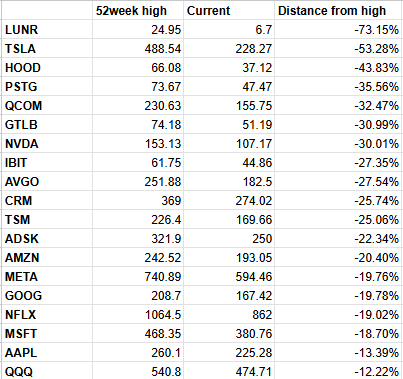Analyzing The Social Communications Revolution
No trades for me today — though I am looking at my BKS and SONC short positions and considering adding a second tranche to each. Let you know if I do. I’m back from Las Vegas and a week of hosting Scutify CEO Kheang Ly as we worked non-stop in person together rather than non-stop from opposite sides of the planet (he’s based in Australia). Anyway, I’m trying to get caught up on what I missed while I was traveling and it’s Monday morning busy already. Here’s today’s report.
The endgame is total empowerment of the end user. Let’s think through how big money can be made applying this concept the way the world communicates, gets its news and otherwise interacts with itself.
We’ve looking at a “Social Communications Revolution.” “Social networking” isn’t a big enough concept for what we’re seeing happen as billions of people spend trillions of hours on these platforms communicating with each other in private and public postings.
On an economic and political level, let’s realize that social communications platforms are creating a more prosperous future with more freedom for all of us. For example, it’s ever harder for the PR machines from the powers that be to control the narrative. And controlling the narrative, framing the issues and downright propaganda is what controls where the developed world is headed. Less propaganda is always a good thing, yes?
All forces can be used for good or evil, and over the last decade, with the incessant snooping and spying from the NSA and other long-existing divisions from what I call the Republican Democrat Regime, we’ve already seen much of the downside of social networking gone mainstream. The other side of that equation is that as the flood of social network communications continue to increase exponentially over an ever increasing number of “mainstream” social network platforms, it becomes ever harder to find them all, much less to tap into their communications, both public and private.
No doubt that issues as wide-ranging as Ferguson, Bill Cosby, the NFL’s tolerance of violent criminal behavior (and the coverage of it), FIFA and IOC corruption, and so on can become even more politicized as people discuss them on social networks. Shining a light on a given issue and getting the public to focus on it is what gives us a chance of getting to the truth, as I explained in the FT in this column years ago. Keeping with our theme, remember that the more eyes you have on any given issue, the harder it becomes to control, touched on here in another FT column from a few years ago.
Twitter, Facebook are the two social networks that everybody thinks of when it comes to sharing news. I have been a long-time investor in Facebook and recently started buying Twitter in part because of their powerful reach in disrupting the control of media. SnapChat, Pinterest, my own Scutify, and thousands of niche social networks are gaining huge traction too. And don’t forget the huge reach of sites that started as independent blogs like DeadSpin, Zerohead, and Ritholtz.com to name a few. We’re communicating with each other more directly more often across the planet than anybody could have thought possible just a couple decades ago.
This concept we’re hitting on can also be called, “Virtuous Entropy.” The whole point is that it’s not centralized or controlled in any way, but at the same time, that chaos is natural and outright prosperous.
A few rules to try to keep social communications virtuous:
Share articles that you know will raise awareness of meaningful topics. Don’t focus on frivolity like Kardashian and TV talent shows. Don’t use your platform to parrot the issues focused on by your political party affiliation. If it’s being debated on cable TV news (even The Daily Show), it’s being framed by the Republican Democrat Regime, so think about that the next time you share a link about immigration or the Pipeline or Iraq, etc.
Best ways to invest in social communications:
Facebook is the best play on this concept as Zuckerberg focuses on the type of billion-person critical mass that nobody else can get to. Zuckerberg wants to keep a monopoly on billion person social communications platforms, and so long as keeps at it, this stock remains a long-term must-own. Twitter and Google are the next best publicly-traded social communications company. The next phase of disruptive social communications platforms are still being built but we’ll see some go public in the next few years, so stay tuned. And, as always, you’ll have to be selective in where you invest your money, even in a huge growth industry like social communications will remain for many years to come.
I’m excited about a more prosperous future with more freedom for all. Aren’t you?




